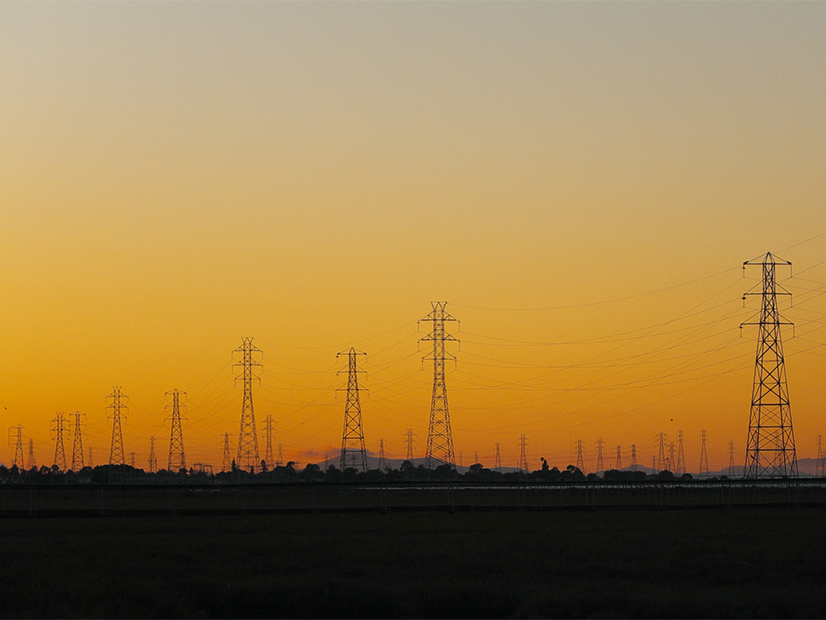FERC on Thursday ordered six more entities to refund the premiums they earned from sales into CAISO during the severe heat wave of August 2020, which strained the Western grid to the breaking point and caused rolling blackouts in California for the first time in two decades.
In its decisions, the commission rejected pleas from half of the sellers to raise WECC’s soft price cap from $1,000/MWh to $2,000/MWh — the same as CAISO’s soft offer cap for external transfers — to avoid repeating the situation in the future.
Mercuria Energy America, Tenaska Power Services and Shell Energy North America (NYSE:SHEL) argued in their filings that the difference between the WECC cap in the non-CAISO West and the CAISO cap for external transfers is unreasonable. The difference puts sellers in the position of having to justify prices of more than $1,000/MWh for bilateral spot trades that occur outside CAISO, while the same trades internally into the ISO would not require justification to FERC, they argued.
FERC, however, said the issue was outside the scope of the proceedings.
“The issue in the instant proceeding is limited to Tenaska’s [and other parties’] justification for [their] sales above the existing WECC soft price cap during which time a $1,000/MWh price cap was in place,” FERC said. “The issue of the value of the WECC soft price cap is not before the commission.”
FERC has been deciding, case-by-case, 21 instances in which sellers exceeded WECC’s soft price cap for sales into CAISO on Aug. 18-19, 2020, as the ISO tried to head off more outages like those that occurred Aug. 14-15, when supply fell short of demand on hot evenings after solar went offline.
On April 18, it told PacifiCorp (NYSE:BRK.A) to refund an unspecified amount that exceeded index prices at the Palo Verde trading hub in Arizona on Aug. 18-19. (See related story, FERC Tells PacifiCorp to Refund Premiums.)
It did the same Thursday to Tenaska, Mercuria, Shell, Tucson Electric Power (NYSE:FTS) and, in a single decision, BP Energy and Mesquite Power (ER21-42, ER21-46, ER21-47, ER21-51 and ER21-57). As it did with PacifiCorp, the commission found that the index prices at Palo Verde already reflected scarcity conditions and said the companies had failed to justify higher prices.
Palo Verde wholesale prices on the Intercontinental Exchange (ICE) peaked at a record $1,515/MWh on Aug. 18 and $1,750 on Aug. 19, according to data posted by the U.S. Energy Information Administration. Palo Verde’s average index price for delivery during peak hours was $1,400.50 on Aug. 18 and $1,639.60 on Aug. 19, the EIA reported.
In contrast, the average price at Palo Verde from June to August 2020, excluding the high prices of Aug. 18-19, was $52/MWh, Southern California Edison and Pacific Gas and Electric said in FERC filings protesting the high prices.
“We find that Mercuria has justified making the identified August 2020 spot market sales at the relevant average index price, but it has not justified the amounts charged above the average index price,” FERC said in a sentence similar to one in its PacifiCorp order and the four other decisions Thursday. “Accordingly, we direct Mercuria to refund the amounts charged above the average index price for the sales at issue within 30 days of the date of this order and file a refund report within 30 days of the refunds being issued.”
As he did in the PacifiCorp decision, Commissioner James Danly dissented, questioning FERC’s authority to negate bilateral contracts reached between buyers and sellers in a time of short supply.
“The legal question in this case is whether the commission can abrogate a contract to sell electricity pursuant to market-based rate authority when the contract price is above a commission-imposed ‘soft’ price cap absent a finding that the public interest so demands,” Danly wrote. “The answer is ‘no.’”
Instead, Danly said he would apply the presumptions of the 1956 cases United Gas Pipeline v. Mobile Gas Service and FPC v. Sierra Pacific Power (Mobile-Sierra) — which PacifiCorp and all six sellers involved in Thursday’s decisions contended should govern the sales to CAISO on Aug. 18-19, 2020.
“I would apply the Mobile-Sierra presumption to the contract sale at issue and not require [the sellers] to pay refunds for the ‘premium’ amount above the price index that [the sellers] and the willing buyers freely negotiated because no showing has been made that the public interest is seriously harmed by the contract rate,” he said.
The four other FERC commissioners found the Mobile-Sierra doctrine applied to sales in the proceedings but did not “prevent the commission from enforcing the requirement that sales in excess of the WECC soft price cap must be justified and are subject to refund.”
“While the Mobile-Sierra presumption applies to these contract sales, this fact is not dispositive as to the question of whether [the] sales that exceeded the WECC soft price cap were justified or whether the commission can order refunds if it finds the prices for those sales are not justified,” the majority said.
FERC was not “modifying the contracts, as would trigger application of the Mobile-Sierra presumption,” it wrote. “Instead, the commission is enforcing requirements incorporated into the contracts” through orders establishing the WECC soft price cap and provisions in the sellers’ market-based rate tariffs.



